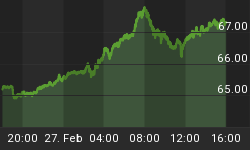Following a tough month, Bitcoin surged above $37,000 as the authorities of the Central American nation of El Salvador passed a law to adopt bitcoin as legal tender, the first such in the world.
Still significantly off from its record high of nearly $65,000 just in April, bitcoin got a 6% boost after the El Salvadoran congress voted to make the cryptocurrency an acceptable legal tender.
El Salvador doesn’t have its own currency and has been using the US dollar for the past two decades. Following the adoption of bitcoin, the authorities said that the dollar would continue as legal tender.
Among other things, according to the law passed by El Salvador, prices can now be shown in bitcoin and merchants will have to accept cryptocurrency as payments. This also extends to tax payments.
The initial proposal to embrace bitcoin came from the country’s president, Nayib Bukele, despite concerns expressed by economists that the adoption of bitcoin as legal tender would lead to complications with the International Monetary Fund (IMF), with the IMF itself also expressing concern about legal and economic issues.
President Bukele has also ordered state-owned geothermal energy utility LaGeo to develop a plan to offer bitcoin mining facilities using energy from the country's volcanoes.
Elsewhere, there are no indications any other economies, major or minor, are planning similar bitcoin adoption moves.
In fact, the opposite is more the trend.
China has recently imposed new rules on cryptocurrencies.
Last month, the People’s Bank of China announced that financial services companies and payment services are banned from pricing or conducting business in virtual currencies. The authorities cited zero protection for consumers should they incur any losses from crypto transactions.
Some other countries, such as India and Denmark, have also banned bitcoin, while several are planning similar bans or stricter regulation.
Meanwhile, in the U.S., the Treasury’s new report called for stricter cryptocurrency compliance with the IRS. The Biden administration’s proposal seeks to strengthen tax enforcement where crypto companies would have to record and report crypto transactions above $10,000, just as banks are required to.
Just a few months ago, bitcoin was unstoppable. Up more than 300% year-to-date, analysts are now saying that it could reach a whopping $146,000. In January, JPMorgan published a note saying that bitcoin could soar to that number as it competes with gold as an “alternative” currency.
An additional boost came from mainstream institutions and Tesla’s CEO Elon Musk, whose tweets spark huge movements in bitcoin prices.
Initially, in January, Musk added the word “bitcoin” to his Twitter profile. Shortly after, it caused a 15% rally in the currency’s value. The tweet followed Tesla investing $1.5 billion in bitcoin.
Yet, bitcoin started to plunge following yet another Musk’s tweet, where he called it overpriced. He also suspended plans to let Tesla customers pay for cars in bitcoin due to environmental concerns about the energy required to mine them saying that it contradicts the ethos of the electric car market.
Earlier this week, bitcoin took another blow and fell to nearly $32,000 after the US authorities recovered most of the ransom paid to hackers that targeted the Colonial Pipeline.
Bitcoin bulls are still confident that it could soar to unbelievable new heights, but it is unlikely that El Salvador’s unexpected legal tender move will be the driver for that. More than anything, the move shows the extreme diversity of thought and confusion surrounding the existential nature and future of cryptocurrency.
By Josh Owens
















